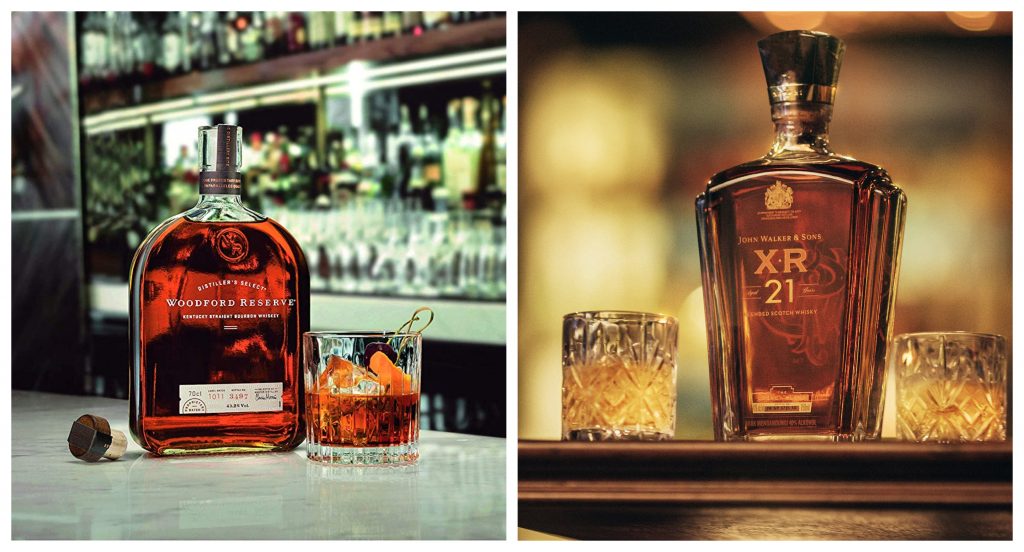
Scotch or bourbon? This age old question has divided many people within the whisky (or whiskey) loving community. Being one of the oldest alcoholic beverages known to man, whisky has evolved so much that it has even been regionalised.
Today there’s over thousands of different whisky expressions developed all around the world. Depending on where the spirit was crafted, it’ll have certain distinctive characteristics unique to the region.
With all that being said, when given options we develop preferences, it’s only natural. This post will shed light on the differences between these two variations and maybe give you an inkling on which is better.
Let’s kick things off with:
Bourbon
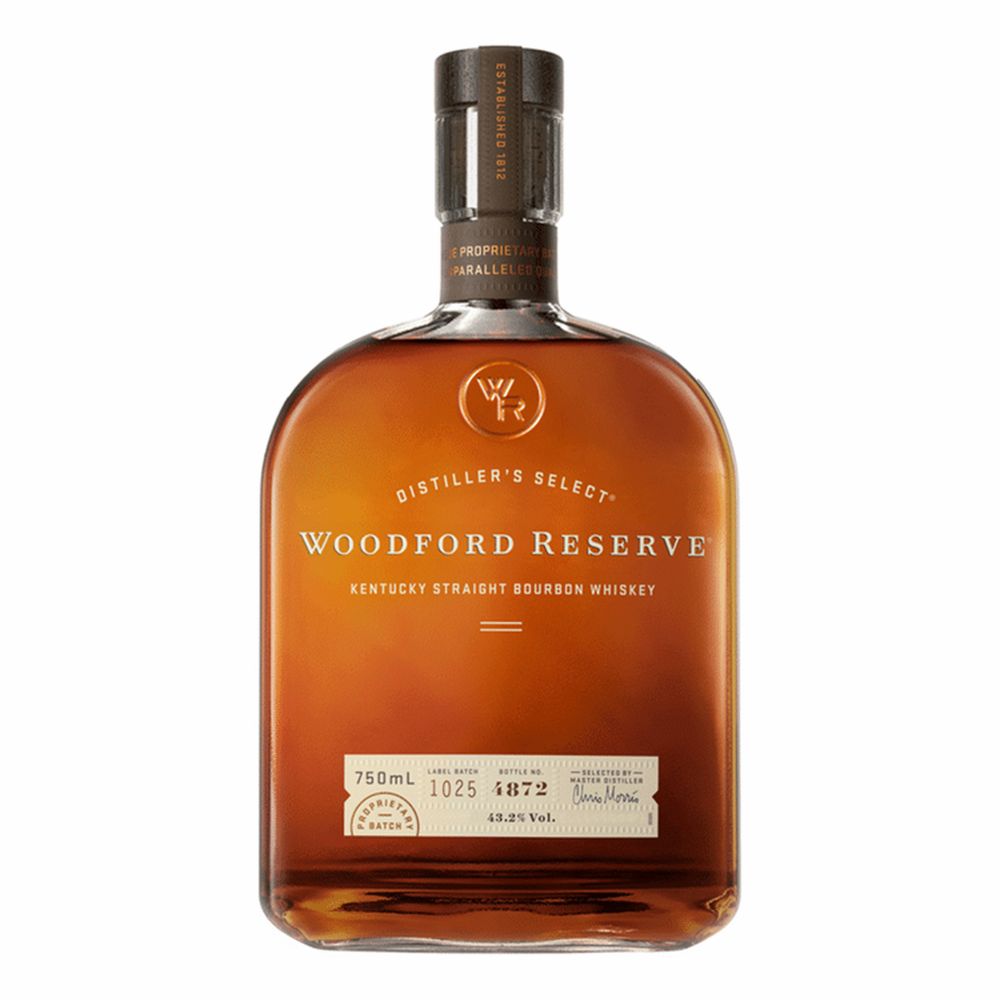
As many of us know, bourbon is produced in the USA – mainly in the state of Kentucky (though other states such as Tennessee have been known to produce world-renowned bourbons as well).
What you might not know (which I didn’t either) is that bourbon is exclusively American. In 1964, The US Congress declared bourbon to be “America’s Native Spirit” meaning that a whiskey has to be produced in the States to be deemed as ‘bourbon’.
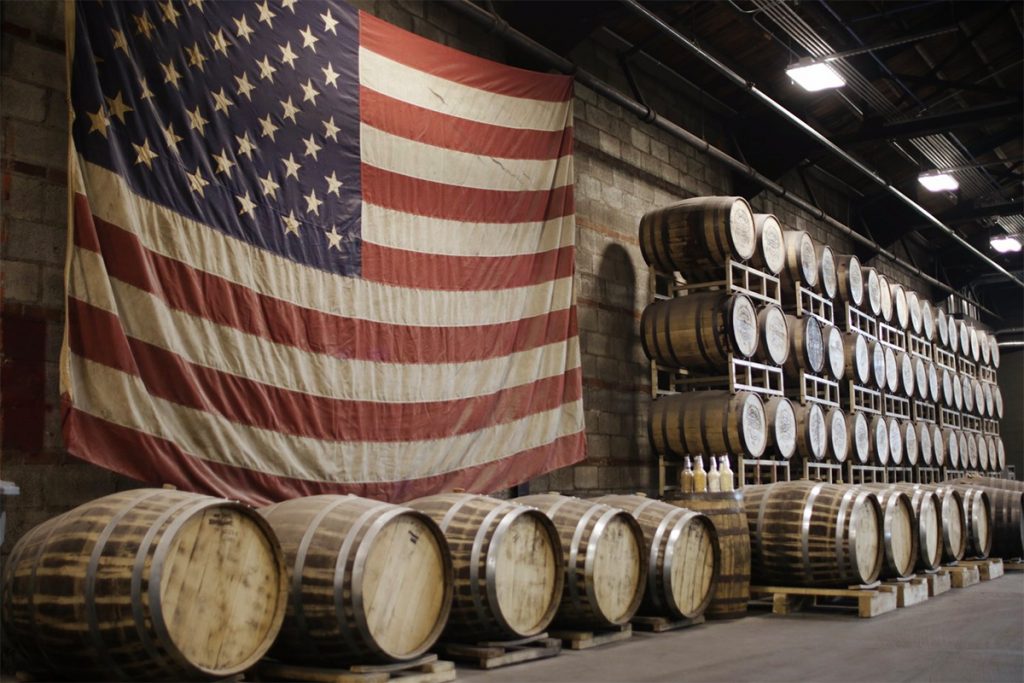
Bourbon is noticeably sweeter than scotch. A ‘true bourbon’ must contain a mash (mixture of grains from which the product is distilled) comprised of at least 51% corn with the remainder of the mix generally being filled in with malted barley and rye (or wheat).
The mash must then be distilled at 160 proof or less before being placed in a new charred oak barrel (usually made of American white oak, though any variety of oak is acceptable to produce bourbon) at 125 proof or less, and should not contain any additives.

Furthermore, bourbon does not have a minimum ageing period unlike scotch but does require any spirit aged for less than four years to have their age stated on its bottle’s label. On the other hand, ‘straight bourbon’ must be aged for a minimum of 2 years.
FUN FACT: Many scotch producers actually use American white oak barrels to give their whiskies a touch of smoothness and bring out flavours such as vanilla and caramel.
Scotch
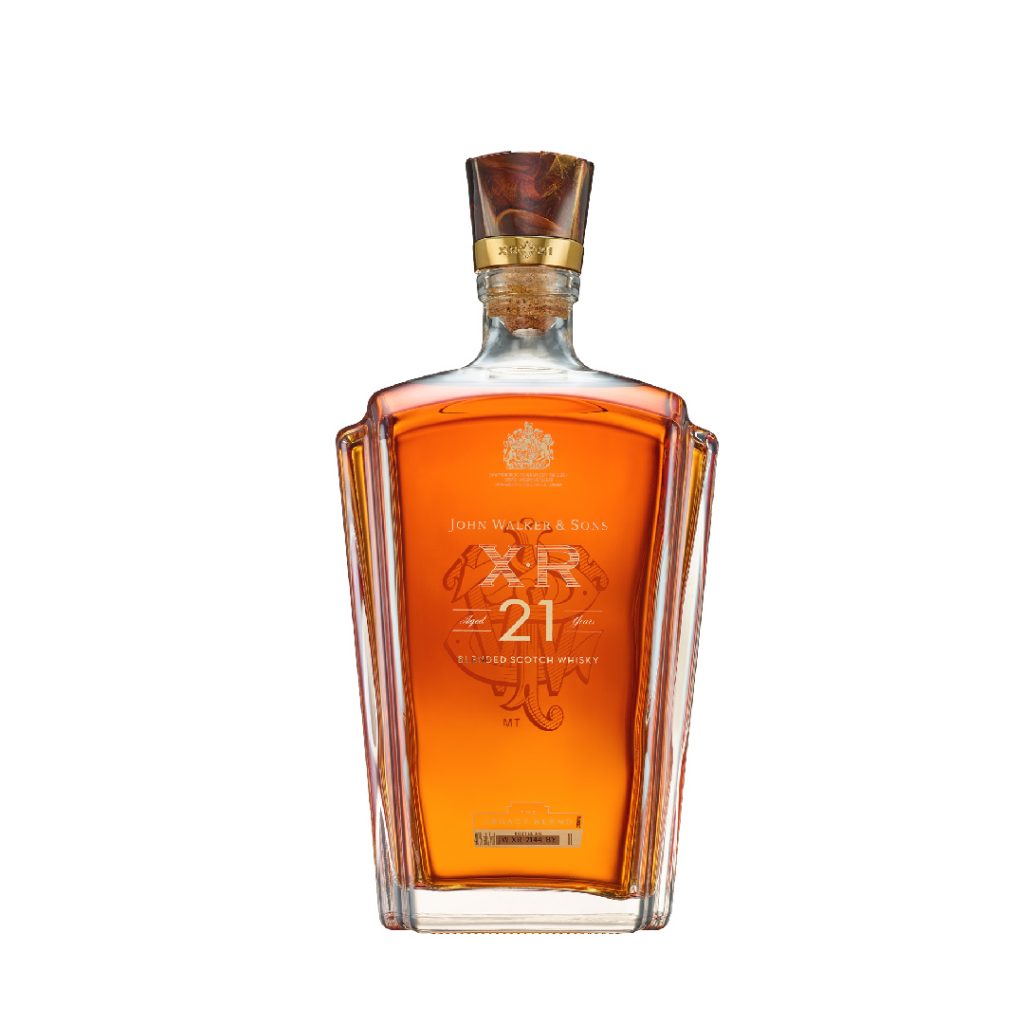
If the term ‘scotch’ wasn’t enough of a hint, whiskies categorised as such hail from Scotland. Unlike bourbon however, scotch whisky is primarily made from barley and commonly distilled in re-used whiskey barrels from the States as mentioned earlier.
Additionally, ex-sherry barrels from Spain are also commonly used to give off a lighter and subtler taste when compared to American whiskeys. The reason for using imported casks is due to the scarcity of certain woods like oak in Scotland.
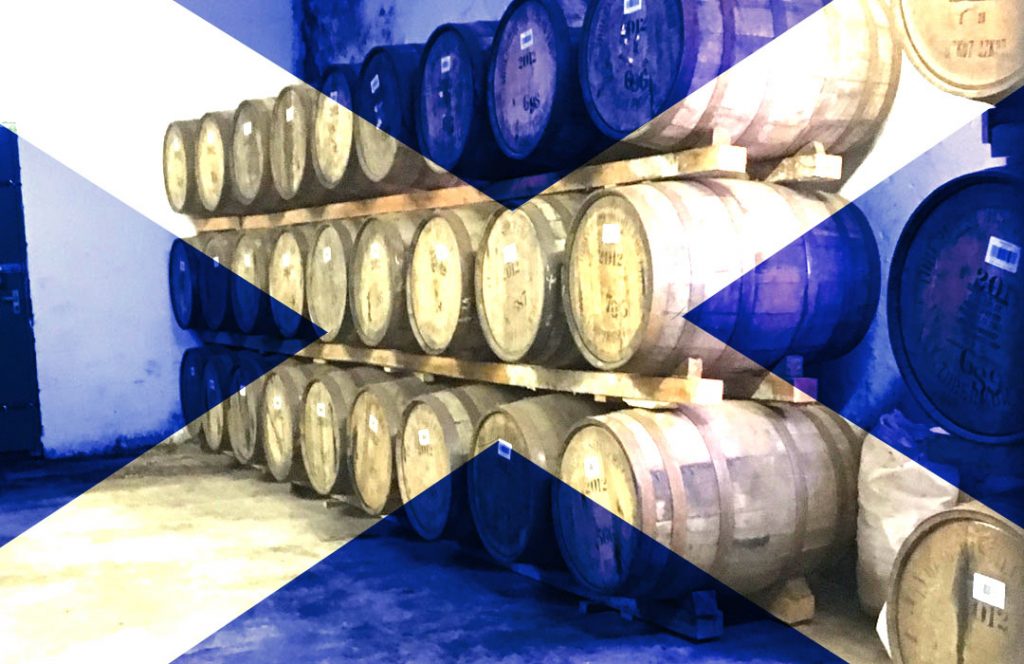
On that note however, many scotch distillers have found ways to make their whiskies distinctively Scottish. One example is by using peat (a type of decayed vegetation) as a fuel source when drying the barley – a common practice in crafting Islay whiskies.
The two main types of scotch are single malt and blended scotch whisky. We’ve covered the differences between the two in an older article if that interests you. Unlike bourbon, scotch must be aged for at least 3 years and bottled at a minimum of 40% alcohol.
Which Is Better?
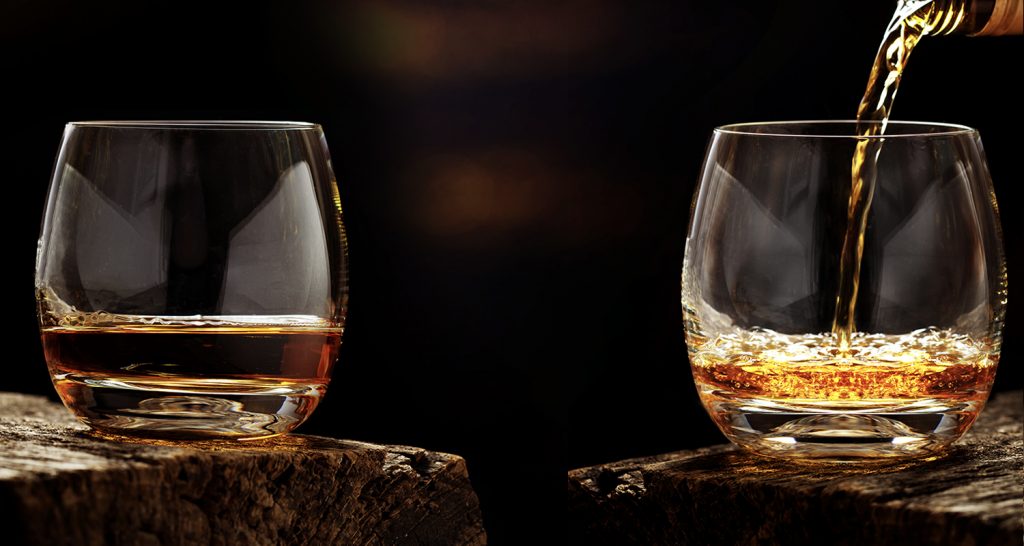
If you’ve gone through any of our previous journals, you’d probably know that this is where I cop out and give a safe answer like: “It really depends on your preference” (it really does though), but not this time.
For me personally… scotch takes the cake.

That’s not to say that I dislike bourbon. I’ve got plenty of love for bourbon. I just feel that there’s so much more variety in the realm of scotch whisky. Whether you’re looking for something light and delicate or super rich and smoky, there’s a scotch for that.
I’m sure you could easily make the same argument for bourbon as well but hey, it’s all about preference right? Regardless of whether you enjoy scotch or bourbon more, I think we can all agree that all whisky truly is the ‘water of life’ as they say in Scotland.
Here’s a variety of whiskies from different parts of the world for you to try out:

Woodford Reserve Kentucky Bourbon
RM320
John Walker & Sons XR 21
RM420
Jameson Triple Distilled
RM208
Hibiki Harmony
RM599
Or check out our entire collection and have your purchases delivered to you today!
*Same day delivery is only applicable for orders made before 4pm.
